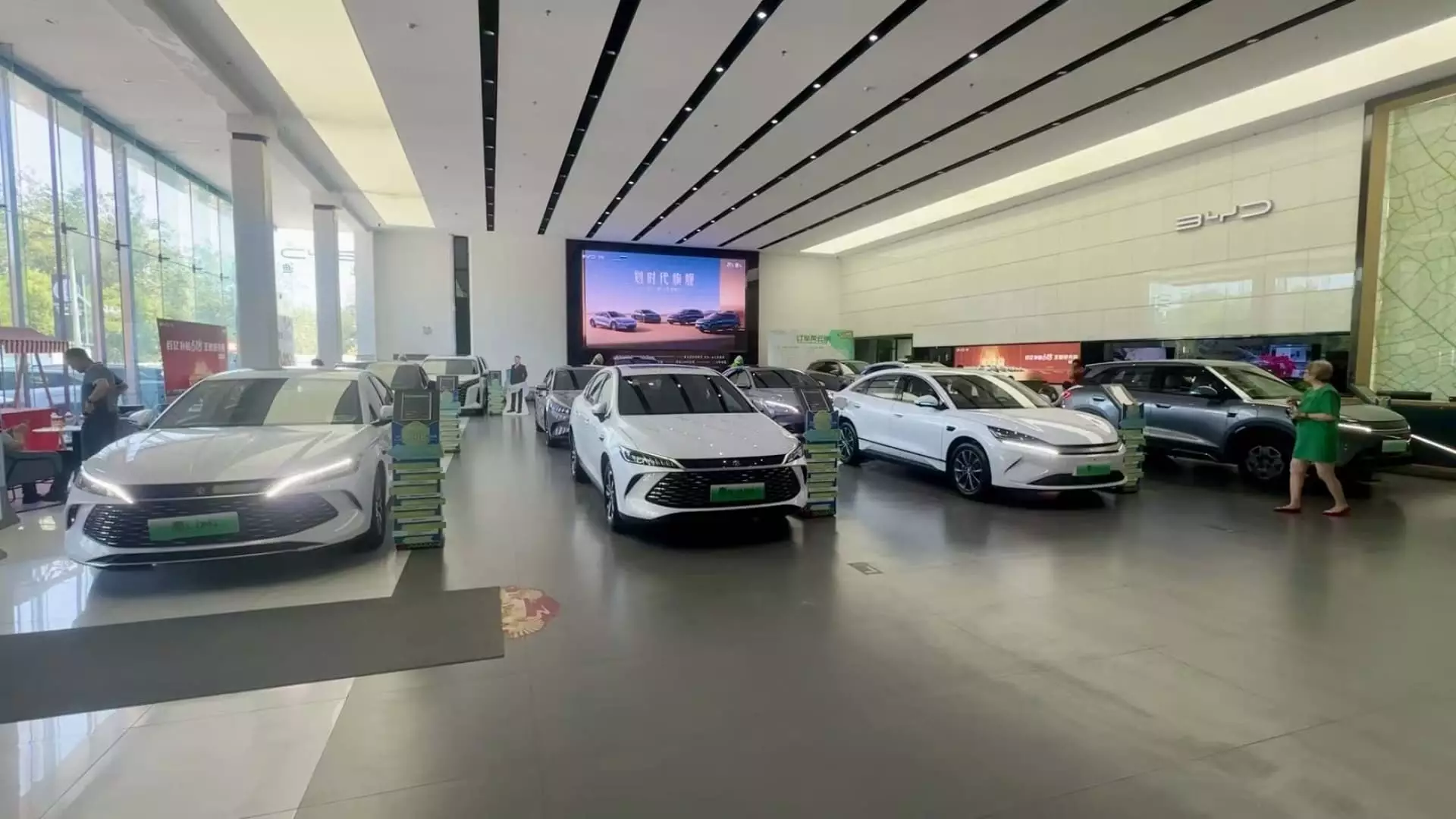In the bustling automotive market of Beijing, an unsettling reality looms over the electric vehicle (EV) sector—the once-promising industry is now embroiled in a self-destructive price war. Salesman Ma Hui lays bare his fears about the future of this burgeoning market, revealing a grim consensus among his colleagues: “All of us were losing money last year.” As companies flood the market with energy-efficient cars, the very heart of the industry’s profitability is being hollowed out. The image of an innovation hub is fading fast, substituted by one of desperation and loss.
This phenomenon of ‘survival of the cheapest’ is raising alarm bells far beyond the borders of China. Historically hailed for their technological advancements, Chinese EV manufacturers are now being accused of saturating not only foreign markets but their own as well with subpar, low-cost vehicles. What was once a narrative of growth and sustainability is now a grim tale of price-slashing that recalls the darkest days of the nation’s real estate bubble.
A Disturbing Echo of the Property Crisis
The comparisons between the automotive industry today and the catastrophic downturn in China’s real estate sector are not merely speculative. With housing giants like Evergrande collapsing under the weight of their unchecked expansion, can the automotive industry avoid a similar fate? Wei Jianjun, head of Great Wall Motor, sees parallels that should send chills down the spine of every stakeholder in the market.
“It’s as if an ‘Evergrande-like’ crisis lurks just beneath the surface,” he warns. The very fact that these sentiments are being expressed openly underscores a collective awareness of an industry teetering on the brink, driven by a reckless disregard for long-term sustainability. While government and industry groups issue stern warnings against “dumping” vehicles at a loss, the very players in the field continue to race toward the bottom in search of immediate gain.
BYD Under Fire
At the center of this maelstrom is BYD, the market leader that ignited the pricing frenzy with jaw-dropping discounts of up to 34%. The company’s aggressive tactics have triggered a knee-jerk reaction from competitors and observers alike. Critics within the industry engage in a bit of blame-shifting, calling the price cuts “unhealthy,” and attributing the chaos to a lack of regulation or oversight. Yet, a question begs to be asked: Aren’t these price wars reflective of a larger systemic issue?
What BYD perceives as fair competition, others see as a fundamental threat to the livelihoods of countless workers tied to the automotive ecosystem. The People’s Daily, the official mouthpiece of the Communist Party, issued a scathing commentary, cautioning, “Disorderly price wars squeeze profits across the chain” and forewarning about a “race to the bottom” that is anything but sustainable. One cannot help but wonder: are progress and innovation being sacrificed on the altar of market share metrics?
Impact on Consumers and Future Prospects
As much as this price war endangers manufacturers, the fallout extends to consumers as well. In an already flagging economy, potential buyers are growing increasingly cautious, waiting for prices to drop even further. While this may initially seem a win for consumers, it presents an unsettling conundrum: will they ever buy, or are they perpetually waiting for the next discount? Ma Hui’s observations suggest a chilling effect on the market, with a paralyzing fear taking hold.
The emergence of “zero mileage used cars,” an unsettling trend where vehicles are essentially sold without being driven, adds another layer to this exceptionally complicated dynamic. This practice serves no one—certainly not the unsuspecting consumers who may feel pressured to engage in a market that can be perceived as misleading.
As the automotive landscape grows fraught with tension and uncertainty, the wear-and-tear on both industry stakeholders and consumers alike is palpable. This scheme of subsidizing losses through aggressive pricing strategies risks crippling an entire ecosystem, one that desperately needs innovation and genuine competition, not this frantic race to the bottom. With such significant barriers to sustainable growth, a reckoning is on the horizon, one that calls for a rethinking of what true competition ought to entail in the EV market.

